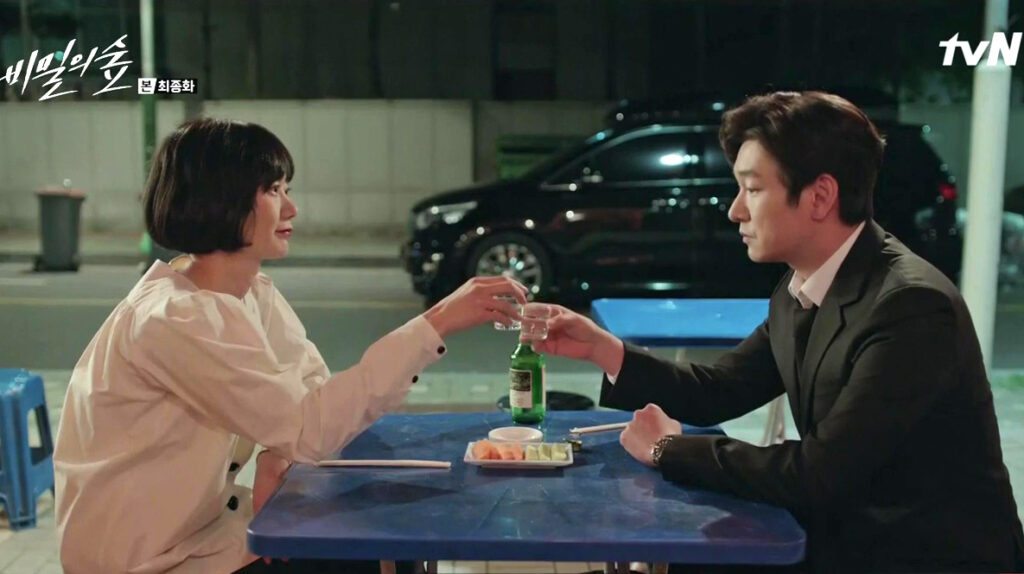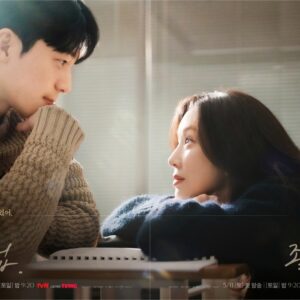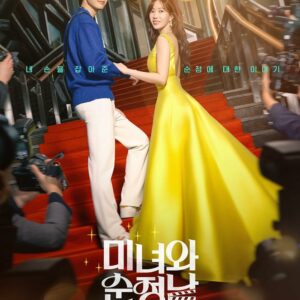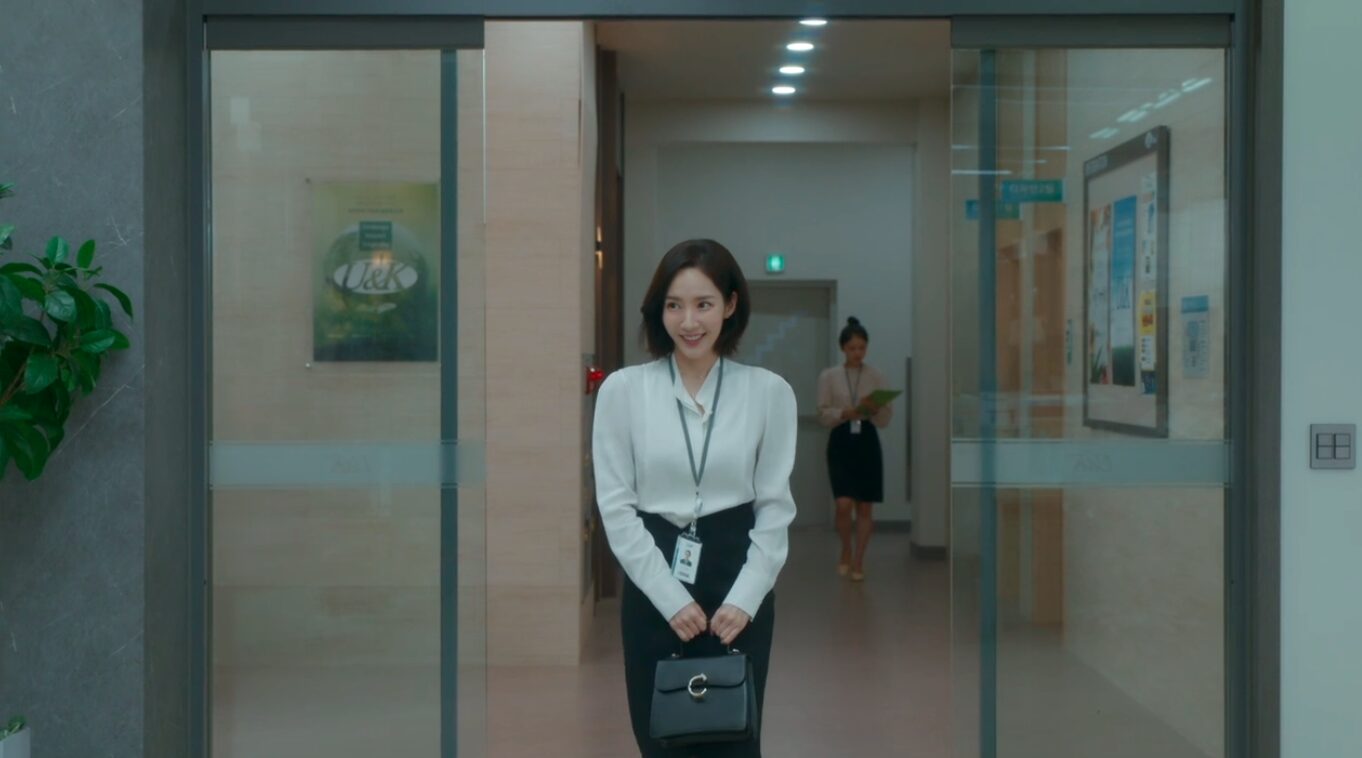It is said that the moral arc of the universe bends towards justice.
It’s a concept that comforts us through the world’s worst periods but also one that seems to be far from true in this day and age. Many things have happened in the last few years that have made the concepts of fairness and equality seem like artefacts of the past: nostalgic remnants of our late 20th century dreams. Nowhere is this more the case than in Korean television.
You could list many differences between Korean and American storytelling but at their core we can say that North American television tells us fantasies of a small group of people changing the world while Korean dramas are about finding a small group of people with which to survive it.
There are cynical undercurrents in both worlds but in Kdramas they tend to be portrayed as immovable and immutable truths – what Lee Dan-ah in Strongest Deliveryman referred to as Hell Joseon. Not able to be changed, just endured. The rich dominating and exploiting the poor in a system designed entirely to their benefit. The rich get richer, the poor get poorer. Much law. Little justice.
The solutions to these problems tend to be framed in fairy tale narratives that tell beautiful fantasies of the poor rewarded for their hard work – usually a Candy marrying a Chaebol.
Want to survive Hell Joseon? Be hard working, cheerful and plucky and a rich man will marry you. Happy ending!
But the world remains the same.
Not to say we don’t all love a good Cinderella myth. But great romantic fantasies are still fantasies after all. Who hasn’t watched a Kdrama and thought ‘Forget the tsundere Chaebol, what this woman really needs is universal healthcare and a living wage’.
Of course there are dramas that deal with people fighting Hell Joseon instead of just surviving it. Shows where a wedding isn’t considered the final destination. Shows even where there’s little romance at all, just Life. And of course I mean shows like Life and its slightly-better sister, Forest of Secrets.
Shows where people fight back and try to change the world rather than just survive it.
When Forest of Secrets ended, there was initial disappointment there seemed to be no resolution. What happened to good prevailing and the defeat of corruption? What happened to blazing, satisfying victory?

Of course, that’s not how the world works and the writer of both shows succeeds where so many others fail because their shows are so real. You can’t completely defeat corruption, just like you can’t singlehandedly stop the privatisation of healthcare. If both shows told us anything, it was that the fight continues so you still need to live your life. TV characters may be able to put their lives on hold while they fight the bad guys, but when the final curtain drops not everything will be wrapped up in a neat little bow.
Nowhere is this more stark than at the end of the very-underrated Angry Mum. In the final scene, however satisfying, there were so many plotlines left to tease out. Would Hong Sang-tae find the evidence he needed to truly destroy his father’s corrupt business dealings? Would Jo Kang-ja head back to her restaurant or find another fight?

When thinking about epilogues, shows like this spring to mind. There’s a reason why Forest of Secrets will likely get a second season. But with shows like Angry Mum or the similarly-satisfying Avengers Social Club, there are only little stories that remain untold; the kind of stories encapsulated in vignettes and throwaway lines.
We can envision a secret scene where we see the Revenge Club celebrating their 10th victory. Or an Angry Mum flash forward where Oh Ah-ran becomes a human rights lawyer, Hong Sang-tae a forensic accountant exposing corruption daily, and Go Bok-dong fulfils his (and viewer’s) dreams of romance with his Noona. Even if the last scenario would rend the fabric of spacetime and destroy the universe, it’s the possibilities inherent in these justice dramas that fire our imaginations and lead us down untold paths.

Our small group may not have changed the world, but they managed to make it better – even if it’s only a little and even if only for a short time. Their story doesn’t end with love nor with fulfilment, instead it ends with options. Real options. A crack in the world. A sliver of light. The descent into Hell Joseon forks into a new road and the arc of the universe bends, however slightly, back toward justice.
So while we spin epilogues in our inspired brains, it’s probably best not to write them down. These characters don’t need to be limited, any more than you and I. Their lives continue, as does ours. And maybe, just maybe, we too can create a few new paths through our flawed world for others to tread behind us.
And through our dreams of their unfolding, imaginary lives, we can dream our own dreams too.



